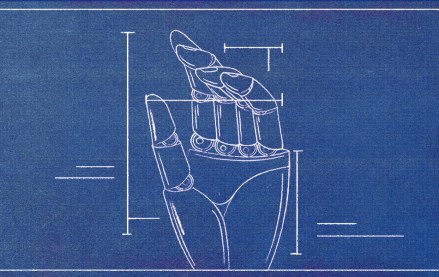‘People would stay in there forever’: Agencies grapple with phone-booth politics
In open-plan offices, where privacy is nearly impossible to find and office chatter has made headphones the norm, the answer has become phone booths: small cubicles that allow for a modicum of lost private space, without forcing employers to give up the far more economically feasible open-plan concept.
For agencies, the open-plan office is meant to foster collaboration in an industry that thrives on that collaboration. But for some, the open plan can make it difficult to concentrate when on a pitch or a deadline without putting on said headphones or finding some way to signal that it’s not a good time to chat. That’s where the phone booths come in.
But as open-plan has changed the dynamics of the office — making the private public — it’s also swayed the perception of what a private space is needed for, making employees question why a phone booth is needed. “People talk quite freely; there’s a lot more personal stuff that gets discussed,” said Tom Goodwin, evp and head of innovation at Zenith. “When you see people pop in those rooms, there’s a sense that something a bit strange is happening. You presume that their family has gotten terrible news or a recruiter has called them.”
Of course, phone booths aren’t solely used to prospective job interviews or salacious personal calls. For some who hole up in phone booths, that taste of privacy can be so appealing that they simply take over the booths, turning them into cubicles for the day rather than a place to have a quick call out of a desire to have a space that’s their own. “Our creative teams seem to crave the small space so they’re able to put stuff up on walls,” said a U.K. creative, James, who declined to use his last name.
Squatting in the booths can create a tricky dynamic. Some agencies employ a system where employees are able to book out a phone booth to ensure that the space is reserved. Others have a first-come, first-served policy. But even with reservations, there’s an etiquette that agency employees say they need to follow.
And it can get frustrating.
“If I book a room and there’s people there who haven’t booked the room or are going over, that can be the most frustrating thing,” said Jason Lewis, vp of pr at A&G, a public relations and advertising agency in Philadelphia. “Being courteous and conscious of people’s time and making sure you’ve booked a room if you’re in it, that’s really important.”
At digital agency SocialCode, phone booths have become integral to the way agency employees work. “It’s part of our culture,” said Sarah Lyons, gm of SocialCode, who said the company using a booking system to manage reservations as the booths are in high demand. “When the hour hits and the meeting time changes, people are in and out of phone booths doing the shift change.”
It’s not just about reserving the space, though. “They get used for things that they shouldn’t be used for — often when we have clients in the building, they’ll take a booth,” said James. “Plus, everything’s glass and definitely not soundproof, so newbies think they’re going in there for a private chat, and often it’s anything but.”
“I’ve heard angry clients on the phone, account handlers get a bit of a kicking,” added James. “Worst of all, a few of us heard a client learn that her pet had to be put down, which then caused the client to break down in tears. It was pretty shocking.”
Still, even with the potential for awkwardness, some agency sources believe having phone booths in open-plan offices gives the best of both worlds. Many pointed to the collaboration and need for speed in agencies that open-plan spaces allow for as a positive. Helen & Gertrude CEO Becca Post believes employees wouldn’t communicate as much as they do currently without the open-plan office.
“In some ways, there’s more freedom to have your own space in an open floor plan as long as you also have those rooms that everyone has access to,” said Lewis.
Some agencies have even tricked out their phone booths and made them part of employee culture. Founder and CEO of digital shop Boulder, Colorado-based Brandzooka, Aquiles La Grave bought and refurbished an old AT&T phone booth from the 1950s after realizing that “people were getting pretty rowdy about calls in an open setting.”
La Grave added noise tiles, installed an iPad Pro for conference calls, put in arcade games and meditation software in the booth. “Eventually we installed a full minibar in there with a wide selection of liquor, alongside scented candles and speakers,” he said. “It’s everyone’s favorite thing, and it’s used almost not at all for phone calls. We call it the timeout spot. Sometimes folks just really like going in there and having me-time listening to the sound of running water and having some bourbon for 30 minutes or so.”
“People would live in there if we could have every single charger you need and it dispensed food,” said Lyons. “People would stay in there forever.”
More in Marketing

Agencies create specialist units to help marketers’ solve for AI search gatekeepers
Wpromote, Kepler and Jellyfish practices aim to illuminate impact of black box LLMs’ understanding of brands search and social efforts.

What AI startup Cluely gets — and ad tech forgets — about attention
Cluely launched a narrative before it launched a tool. And somehow, it’s working.

Ad Tech Briefing: Start-ups are now table stakes for the future of ad tech
Scaled ad tech companies need to maintain relationships with startups, when the sector is experiencing ongoing disruption due to AI.








